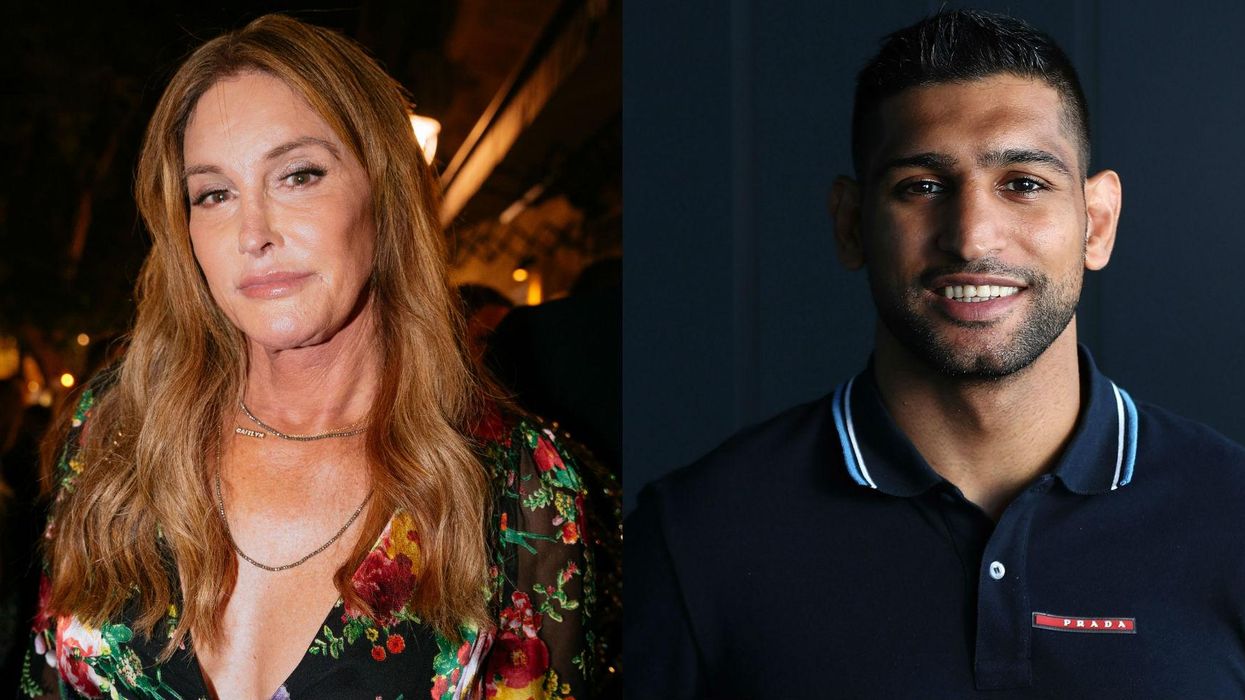News
Jake Hall
Jul 21, 2018

Photo: Getty Images / Thomas Niedermueller / Photo: Getty Images / Chris Hyde / Stringer
Earlier this year, a Texas study found that young trans people were overwhelmingly less likely to self-harm, contemplate suicide or suffer symptoms of severe depression when the people around them made the effort to call them by their chosen name.
British boxer Amir Khan failed to offer this respect to Caitlyn Jenner this week, instead referring to Jenner by her birth name – otherwise known as her ‘dead name’ - on a Snapchat post.
The post in question was a photo of the two athletes together at the ESPY Awards in Los Angeles, but Khan later shared a video of himself high-fiving Jenner.
On this occasion, Khan used her chosen name by tagging her Instagram: @caitlynjenner.
Khan’s initial post was met with online backlash as well as claims of ‘transphobia’, which he this morning responded to by posting an official apology.
In the statement, issued to his official Twitter account, Khan explained that the reference to Jenner’s dead name was made “in regards to their sports image, as an Olympian”, but was a “genuine mistake” nonetheless.
This isn’t the first time that people have tripped over themselves to refer to Jenner correctly.
In a way, this is understandable – not only did she transition later in life after a lengthy, high-profile career as an Olympian and then a reality star, Jenner also has two daughters, Kendall and Kylie. In the past, she has openly discussed the fact that they are both still allowed to refer to her as ‘dad’.
Despite Jenner’s unique circumstances, there’s no excuse for using her dead name – she literally announced her transition with a magazine cover captioned “Call me Caitlyn”. How much more of a clue do people need?
It's also worth noting the words of Shon Faye, a writer and stand-up comedian who this year explained why 'misgendering' - the act of deliberately calling a trans person by the wrong pronouns - is harmful. Speaking on Novara Media show The Ciscourse, she said:
If you just want to understand it superficially, it's polite: you call people what they want to be called.
But fundamentally, what someone is saying when they misgender you is that everything you've worked so hard to assert about yourself against all odds - people lose families over this, people risk violence - is "I have the power always to take that away, and you are not what you say you are."
[They're saying] that there is some essence you can never run away from... it's inherently a very psychologically dominant act.
It might seem just a small act of politeness, but making the effort to respect a trans person's chosen name and pronouns could have positive effects you'd never have imagined.
More: Daily Star accused of 'transphobia' for insensitive Kellie Maloney headline
Top 100
The Conversation (0)













